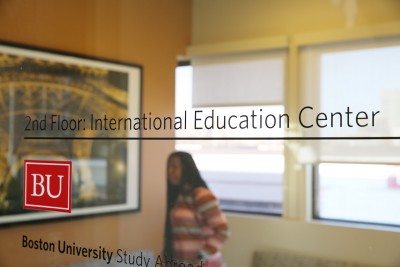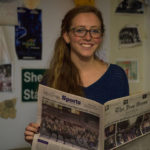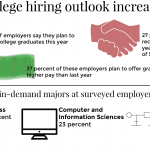
Boston University Global Programs launched the International Student and Scholar Hub Monday and created an aggregation of resources and information, particularly for international students.
“The Hub attempts to … build on the existing and developing resources provided by our Boston University community in an effort to help ensure the academic success and well-being of our international students and scholars,” according to the email sent to the BU community on Monday.
The Hub is a website for the entire BU community with an aim at helping international students acclimate to living and studying at a large city campus such as BU, according to Willis Wang, the vice president and associate provost for Global Programs.
Wang wrote in an email that the creation of the Hub came from several instances in which international students had difficulties adjusting to American academic and classroom expectations. International students need help to overcome the language and culture barrier and to integrate into the BU community, he noted.
“When investigating the availability of existing resources providing support to international students at BU and determining what gaps needed to be filled, it was discovered that a lot of resources already existed, [but they] may not be widely known,” Wang wrote.
Wang noted that the purpose of the Hub is to allow students to have a place to go with their inquiries, where they would find the appropriate and quick assistance.
“The Hub also helps students discover how to become more involved with BU … or connect with other students from their own culture,” Wang stated. “We are hoping it will make their life at BU a bit easier, both academically and socially. It is a dynamic hub, meaning that it will grow and change as the needs of our students may change.”
The Hub provides five categories of resources and information: academic, career and employment, health and safety, community and housing. Wang wrote that these categories can help students in numerous ways.
“This was a collaborative effort across various BU administrative departments, schools and colleges to ensure that we include all the resources available to students at BU,” Wang wrote. “We have also added non-BU resources, especially in the area of housing, which we thought would be useful to students.”
Zi Ye, president of the Chinese Student and Scholars Association, said she hopes the Hub will help unite student groups and offer students options to meet other international students.
“I would definitely love to see this platform or support from groups so that they could [aggregate] the information from various student organizations,” said Ye, a junior in the College of Communication. “For now, we have lots of student organizations at school that are from different countries. However, they are all fragmented. They aren’t connected to a single student [organization].”
The number of undergraduate international students has increased by three times in the past 10 years, growing from 994 in 2005 to 3328 in fall 2015, according to data provided by the International Students and Scholars Office. The data also showed a slight decrease of the number of scholars from 1,136 to 1,117.
The data further showed that there were 8,452 international students out of all the students at BU, with students from China making up 43 percent of the population at 3,637 number of students, followed by India with 9 percent at 787 students.
Several international students said the Hub could help students who struggle with English as a second language.
Patrick Yang, a freshman from Taiwan, said if he did not know English fluently before coming to BU, the Hub may have been useful for him in that regard. But he has had an easier time adjusting to campus life because of his English proficiency.
“Being able to speak fluent English eliminates the language barrier that many international students face,” said Yang, a student in the Questrom School of Business. “Without that obstacle, it is a lot easier … because you can communicate easily with other people around you. So you will easily be able to establish a network of friends.”
Zixing Zhang, a sophomore from China, said when she first moved to BU, it was difficult to understand and get along with people from so many different cultures.
“When I was a freshman, I felt like the cultural difference, like the different diet and lifestyle [was difficult],” said Zhang, a student in Questrom. “I lived in the Warren Towers [freshman year], and on my floor there were a lot of students from different countries, and we had different schedules and sometimes it is difficult to understand different cultures.”
Angelina Leung, a freshman from Hong Kong, said she went to international schools and English-speaking schools before coming to BU, so she didn’t face some of the challenges some international students have.
“[The Hub] will be helpful in meeting new people and [becoming] more comfortable around campus,” said Leung, a student in COM. “If I was in that situation where my English wasn’t that good or I hadn’t seen a lot of Westerners or anything, it would be good to meet a group of people to talk to or share my experiences with.”















This is great news because being an international student isn’t easy, given our complex culture and language. Assistance must come from numerous sources to aid these young people embarking on life’s journey. A new award-winning worldwide book/ebook that aids anyone coming to the US is “What Foreigners Need To Know About America From A To Z: How to Understand Crazy American Culture, People, Government, Business, Language and More.” It is used in foreign Fulbright student programs and endorsed worldwide by ambassadors, educators, and editors. It also identifies “foreigners” who became successful in the US and how they contributed to our society, including students.
A chapter on education explains how to be accepted to an American university and cope with a confusing new culture, friendship process and daunting classroom differences. Some stay after graduation. It has chapters that explain how US businesses operate and how to get a job (which differs from most countries), a must for those who want to work for an American firm here or overseas.
It also has chapters that identify the most common English grammar and speech problems foreigners have and tips for easily overcoming them, the number one stumbling block they say they have to succeeding here.
Most struggle in their efforts and need guidance from schools’ international departments, immigration protection, host families, concerned neighbors and fellow students, and informative books like this to extend a cultural helping hand so we all have a win-win situation. Good luck to all wherever you study!